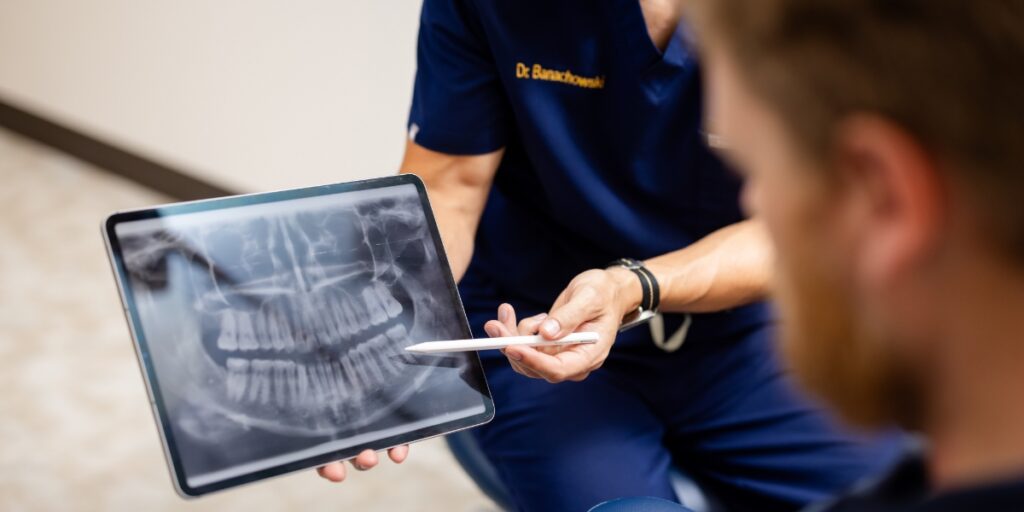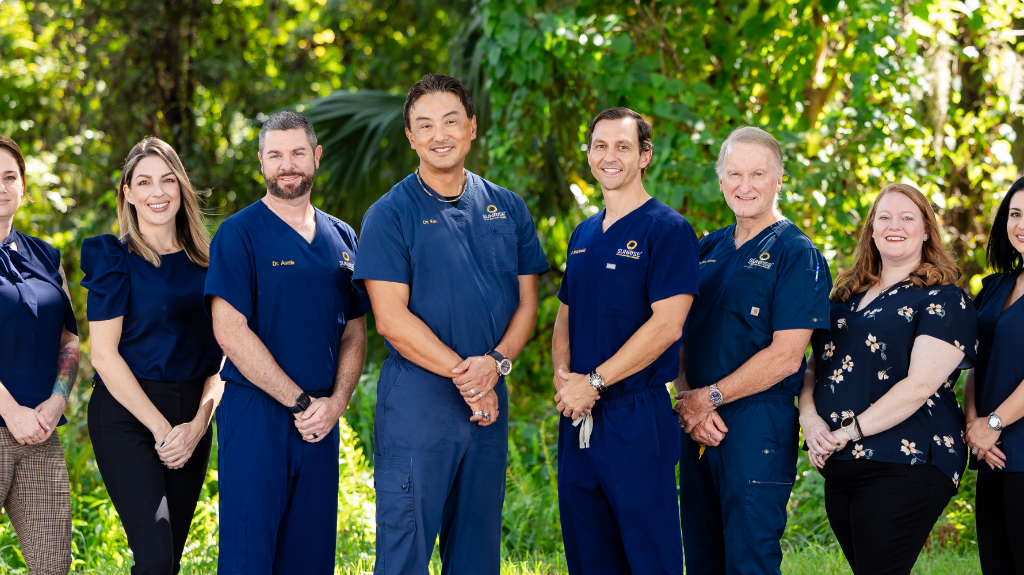
Oral pathology is a specialized branch of dentistry that focuses on the diagnosis and management of diseases, conditions, and abnormalities that affect the oral and maxillofacial region. It involves the study of the causes, nature, progression, and treatment of various oral diseases and their impact on overall oral health.
Dr. Schmid, Dr. Kim, and Dr. Banachowski are trained to identify and diagnose a wide range of oral conditions, including:
- Oral Cancer: Oral pathologists play a crucial role in the early detection and diagnosis of oral cancer. They examine tissues, perform biopsies, and analyze cells under a microscope to identify any signs of malignancy or pre-cancerous lesions in the oral cavity, lips, tongue, gums, or other oral tissues.
- Oral Infections: Oral pathology encompasses the diagnosis and management of infectious conditions such as oral herpes, candidiasis (oral thrush), bacterial infections, viral infections, and fungal infections that affect the oral mucosa, gums, or salivary glands.
- Oral Precancerous Lesions: Oral pathologists identify and monitor precancerous lesions that have the potential to develop into oral cancer. Through thorough examination and monitoring, they help determine appropriate treatment or intervention to prevent the progression to malignancy.
- Salivary Gland Disorders: Oral pathologists diagnose and manage conditions affecting the salivary glands, including inflammation, infections, and tumors that may cause swelling, pain, or changes in salivary flow.
- Oral Manifestations of Systemic Diseases: Many systemic diseases can manifest in the oral cavity. Oral pathologists identify and diagnose oral manifestations of conditions such as autoimmune diseases, blood disorders, hormonal imbalances, and genetic disorders.
- Developmental Anomalies: Oral pathologists evaluate and diagnose developmental anomalies of the oral and maxillofacial region, including abnormalities in tooth development, cleft lip and palate, and other congenital conditions.
We work closely with other dental and medical professionals to provide accurate diagnoses and develop appropriate treatment plans. Our experience and diagnostic skills contribute to early intervention, improved patient outcomes, and overall oral health.
Do You Have Questions For Us?
We’re here to help! Get answers to all your questions by reaching out to our team.
Common signs and symptoms of oral cancer include:
- Persistent Mouth Sores: Any sore or ulcer in the mouth that doesn’t heal within a few weeks or keeps recurring should be evaluated. These sores can be painful and may bleed easily.
- Red or White Patches: Red or white patches (leukoplakia or erythroplakia) on the tongue, gums, tonsils, or lining of the mouth can be early signs of oral cancer. They may appear flat or slightly raised and can be painless or mildly uncomfortable.
- Persistent Pain or Discomfort: Unexplained persistent pain, tenderness, or discomfort in the mouth, throat, or ear should be evaluated. This can include a sore throat, difficulty or pain when swallowing, or feeling like something is stuck in the throat.
- Difficulty Speaking or Swallowing: Changes in speech, such as slurring or difficulty pronouncing words, and difficulty swallowing (dysphagia) or chewing may be indications of oral cancer.
- Changes in Voice: Persistent hoarseness or other unexplained changes in the voice can be signs of oral cancer affecting the vocal cords or nearby structures.
- Swelling or Lumps: Any unexplained swelling, lumps, or thickening of the tissues in the mouth, throat, or neck should be evaluated. This can include swelling or lumps in the lips, gums, tongue, or lymph nodes.
- Numbness or Tingling: Numbness, pain, or a tingling sensation in the mouth or lips can occur in some cases of oral cancer.
- Changes in Denture Fit: Oral cancer can lead to changes in the way dentures fit or discomfort with wearing them.
It’s important to note that these signs and symptoms can vary depending on the location and stage of the oral cancer. Regular dental check-ups and oral cancer screenings are essential for early detection and prompt treatment. If you experience any concerning signs or symptoms, it’s recommended to consult a dental professional for an evaluation.
